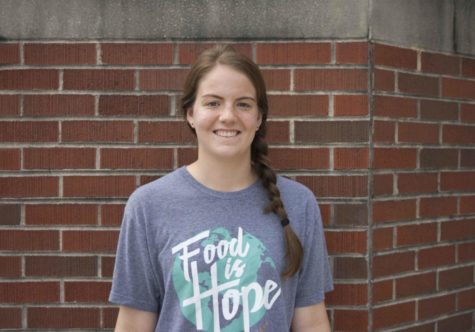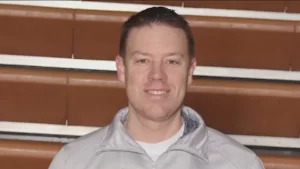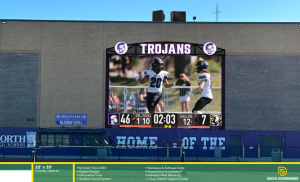Snowball-goers can ‘cross the line’ without fear
December 13, 2017
Operation Snowball paints itself as a weekend for high schoolers to have fun and open up to their peers about topics that are not usually brought up in the classrooms. Teachers are invited to come on the retreat to participate, but a teacher’s presence may cause the guise of “what happens at Snowball, stays at Snowball” to falter in the eyes of the young participants, inspiring students to question the confidentiality of Snowball.
“What happens at Snowball stays at Snowball” is a mandatory cabin rule that participants are informed of on the first day of the retreat. Junior Fumei Jackson, who led her first Snowball group this fall, explains the rule.
“Everything that’s said at Snowball, stays at Snowball – and in your small group. So if someone shares in a small group ‘my parents are divorced,’ even though you’re at Snowball, [student Snowball leaders] teach their groups that what’s in the small group stays in the small group,” Jackson said.
But in the eyes of the law, there are exceptions.
DGN staff members are considered “mandated reporters,” meaning that if they have reasonable cause to suspect that a student is a victim of abuse or neglect, they must report it no matter what. Failure to fulfill one’s duty as a mandatory reporter is considered a “willful failure to report.” This, according to Illinois Department of Child and Family Services, is a misdemeanor (first violation) or a class four felony (second or subsequent violation).
At Snowball, abuse is referred to as the “three hurts”: a student is being hurt, hurting themselves or hurting others. In order for Snowball leaders to break confidentiality, the student themself must admit to their wrongdoing. Student Snowball leaders are given plenty of training to recognize when a student needs extra help.
“We give examples, we run scenarios, and at any cost, we say err on the side of caution,” Lauren Aramburu, the Downers Grove Township’s Prevention Specialist who has a large role in planning Snowball, said. “So, maybe someone isn’t sitting there saying “I hurt myself” but alludes to it, they’re always supposed to report it no matter what.”
In this situation, student Snowball leaders are encouraged to report any mention of the three hurts to a Snowball adviser. However, the responsibility of reporting truly falls onto the shoulders of teacher volunteers.
“The adult has an ethical obligation and, in most cases, a legal obligation to break confidentiality where there’s a safety issue involved,” Student Assistant Coordinator and adviser for Operation Snowball Keith Bullock said. “The adult volunteer then speaks to a Snowball adviser (who is a social worker or counselor) to help figure out what follow-up is needed at camp, with family, or back at school.”
When there is reasonable cause to believe that a student experiences one of the three hurts, steps are taken to provide that student with support.
“Depending on the severity, parents are called,” Aramburu said. “If the student is coming to school the following Monday they’re followed up with their counselor or support staff.”
Illicit drug use is another story. During the activity cross the line, students and staff are asked to cross a line in front of everyone on the retreat if a statement applies to them. The content of these statements range from “cross the line if you love corgis” to “cross the line if you are worth something to someone.”
Adam Grey* chose not to cross the line on the statement “cross the line if you are living a tobacco, drug, and alcohol free life.”
Grey* says that, although he was nervous, he felt obligated to be truthful.
“I was a little worried, but I knew I had to own up to it,” Grey* said. “When it comes to confidentiality, I had a feeling that [teachers] wouldn’t say anything because I haven’t been called down or anything so far.”
Snowball seeks to reach out and encourage students to live healthy lifestyles, but, in Aramburu’s opinion, it’s very difficult to meet that goal if the student feels defensive. Therefore, Snowball leaders are taught to support participants rather than make them feel condemned.
“The reaction is ‘no judgement,’ Aramburu said. “People choose unhealthy choices no matter what. So the reaction, especially when we train leaders, is that if people disclose that they’re using substances in small groups, it’s ‘no judgement.’”
The mission of Snowball is to provide “awareness and prevention of alcohol, tobacco, and other drug use.” Yet Snowball leaders don’t have to help participants break the habit because, according to Law teacher Karen Spahr-Thomas, intervention is not a legal obligation.
“By law, [teachers] are not required to report it,” Spahr-Thomas said. “Unlike mandated reporting for physical or sexual abuse or neglect – that we’re required by law to – but substance abuse? No.”
The ambiguity of cross the line statements are another reason that Grey* may not have been reported.
“A kid could sit there and be a junior and in their head say ‘I drank freshman year. I experimented a lot. Not now, but maybe then.’ […] It’s their interpretation. We can’t sit there and say ‘So-and-so, I noticed you didn’t crossed the line. What are you doing?’ Because then [we are being] accusatory of you,” Aramburu said.
Grey* and others that chose not to cross the line can rest assured that neither student Snowball leaders nor teachers will break confidence. Grey* will only have to worry about whether or not his peers will keep their promise of “whatever happens at Snowball stays at Snowball,” but Grey* is not concerned.
“The people that I can trust won’t [disclose that information], and I trust people at Snowball because they made the decision to overcome and try it out,” Grey* said.” I trust everyone at Snowball, including the adults and staff.“
*Names have been changed to protect identities

























